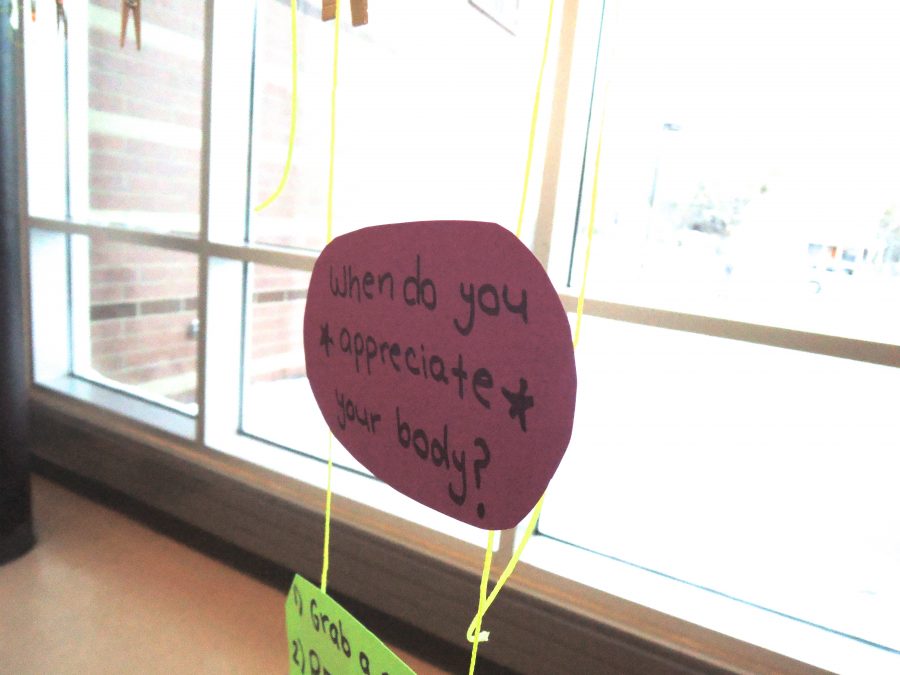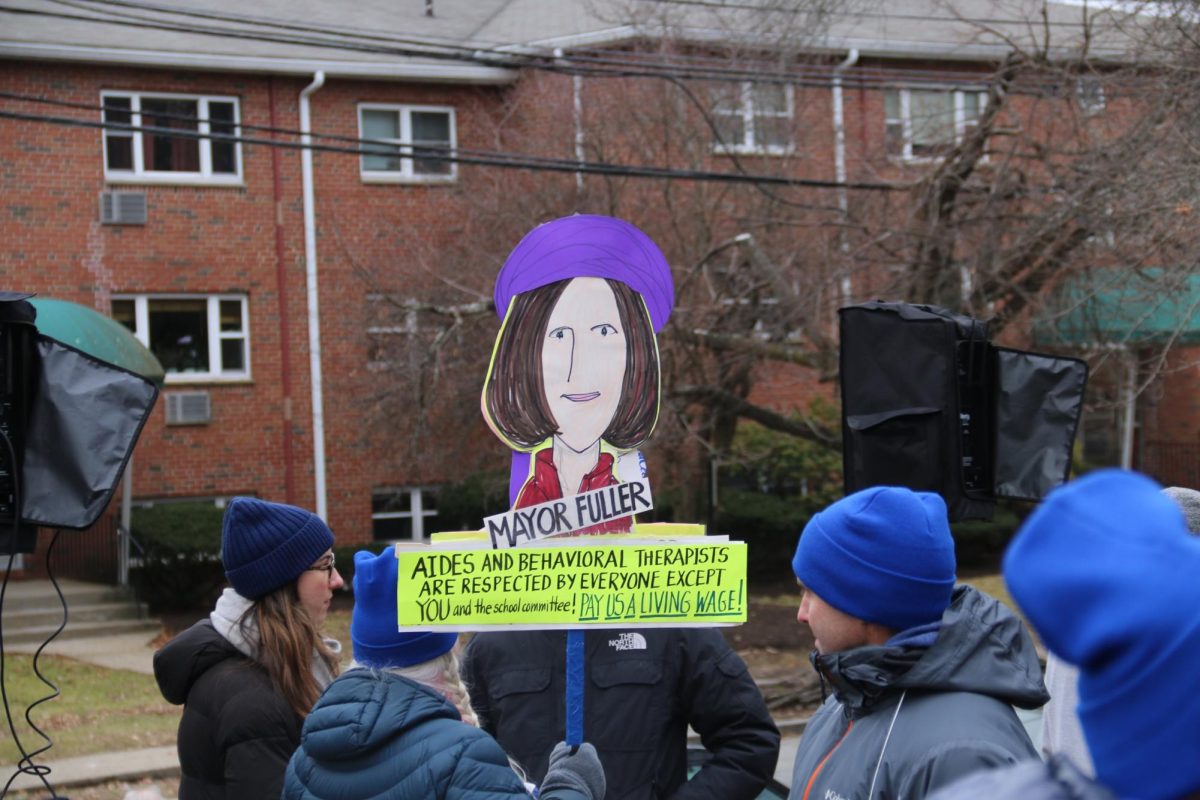by Peter Diamond
One of the principal takeaways of Body Confidence Day Thursday, Jan. 23 was that our society’s struggles with body image is an issue of media literacy. I was lucky to be involved in the committee that planned the event, and I commend senior Kelsey Fox and all those who helped to organize the community to celebrate body confidence. And after seeing the number of Super Bowl commercials that shared a monotonously sexist image of female bodies, I can appreciate the relevance of this discussion.
Multiservice Eating Disorders Association founder Rebecca Manley’s presentation during A-block cited harmful perceptions of body image on degrading and unrealistic depictions in the media. I don’t deny the link that connects entertainment and advertising to our society’s overall lack of body confidence, but like Manley, I question whether we have the advertising executives to blame, or whether we should blame our own overall lack of media literacy.
Five minutes of television can be distasteful enough to affirm the assertion that entertainment has the capacity to ruin society. In fact, the abhorrent content online and on TV seems inevitable, so any argument against it is legitimate but inconsequential. Maybe accepting the fact that a TV is a box of dishonesty and miscommunication is the first step toward preventing some future tragedies.
As Manley said during her presentation, “Ads sell more than their products . . . They aim to show us who we should be.” I’d like to expand “ads” to encompass much of TV and social media as well, and to add that they not only attempt to influence our self-perceptions, but also our beliefs. Thirty minutes of a television program don’t have to depict flag-waving (or flag-burning) to be political. An overwhelming amount of advertising and entertainment unites to color our perceptions of body image (featuring unrealistic, Photoshopped female bodies), parents of color (depicting Asian mothers as tiger moms, and depicting black mothers as disorganized but compassionate mammies attempting to make up for their incompetent husbands), and transgender people (appearing almost exclusively in the media as victims or serial killers, like in Silence of the Lambs or Law and Order: SVU).
For all intents and purposes, the “entertainment” media is fiction, but as long as we operate under the assumption that the positives of the First Amendment outweigh its negatives (Fox News, anyone?), we have to accept the responsibility of identifying the media’s inexorable lies and degradation (I repeat: Fox News).
Therefore, it’s no coincidence that a messed up entertainment industry, a far-too-gullible public, and an overwhelming lack of body confidence share a home in the United States. And the relationship of those three related traits of this community and country might be a bit of a “chicken or the egg” sort of question; can the tragic body image suffering that is all too common around here exist without the developed sort of pop culture that is unique to the first world?
I’m not trying to illegitimatize the fact that people who suffer the consequences of our lack of media literacy are victims. For example, people who suffer from eating disorders that can be linked to the media’s unrealistic depictions of body image are victims who need help, not blame. Danger does not exist because of one person’s media illiteracy; rather, as an audience of at least 300 million people, we have failed to reject the degradation that exists in entertainment.
By the same token, a lack of body confidence is not the type of “first world problem” we can laugh at. The presentation of humanitarian Liz Walker during C-block of Body Confidence Day seemed to put off some audience members; in fact, a friend of mine stormed out of the audience at one point. Toward the beginning, she lost some of her audience upon (in her own words) asserting that, in an entirely literal way, body image is a first world problem by saying, in regards to her fact-finding mission as a journalist in Sudan, “If you go to a place where people have no food, it might change your view of your problems.” Even audience members who recognized the kernel of truth behind Walker’s statement seemed disappointed in what seemed to some to be a dismissal of the day’s mission (especially because the presentation turned into a tangent about her experiences in Sudan that was impressive but arguably irrelevant).
I can understand and appreciate the disagreements that some audience members had with Walker, but I doubt that she was outwardly trying to dismiss the essential topic that Body Confidence Day attempted to address. Instead, she delivered a speech that held importance among presentations that addressed body confidence within our narrow context (and acknowledged the obvious but uncommon recognition that body confidence issues cannot exist in the presence of starvation). Walker’s speech challenged us to consider the limits of our context, the fact that body confidence, although important, is only a piece of a puzzle. And in that way, she made a tangent about fact finding in Sudan relevant to our specific celebration.









































